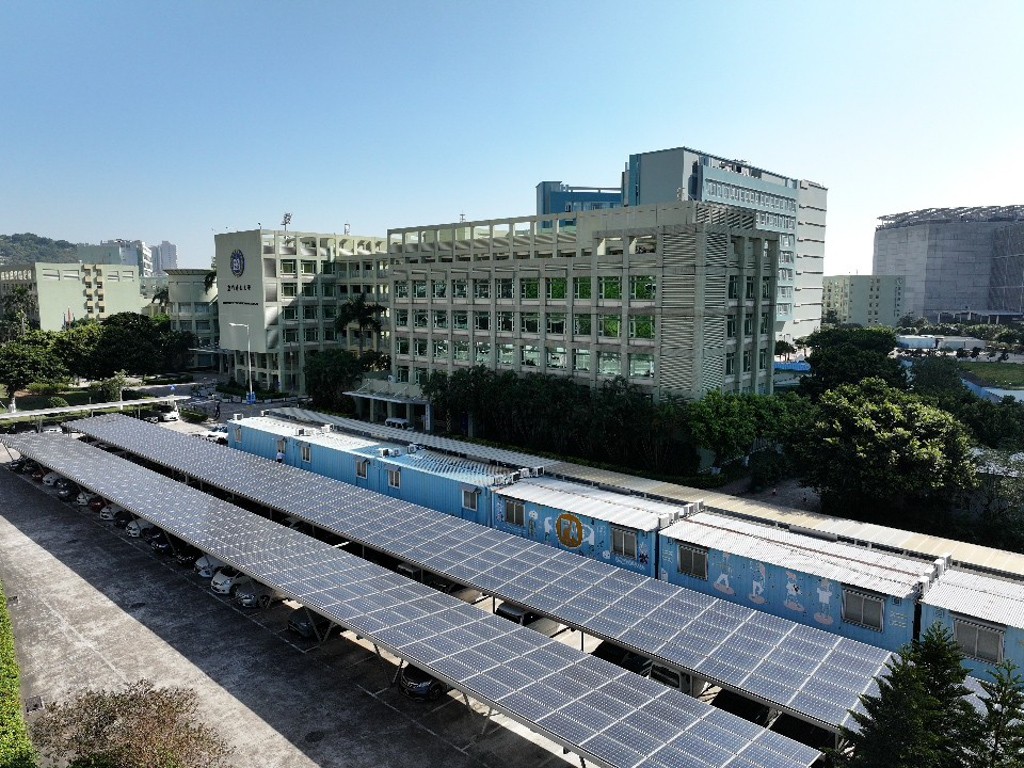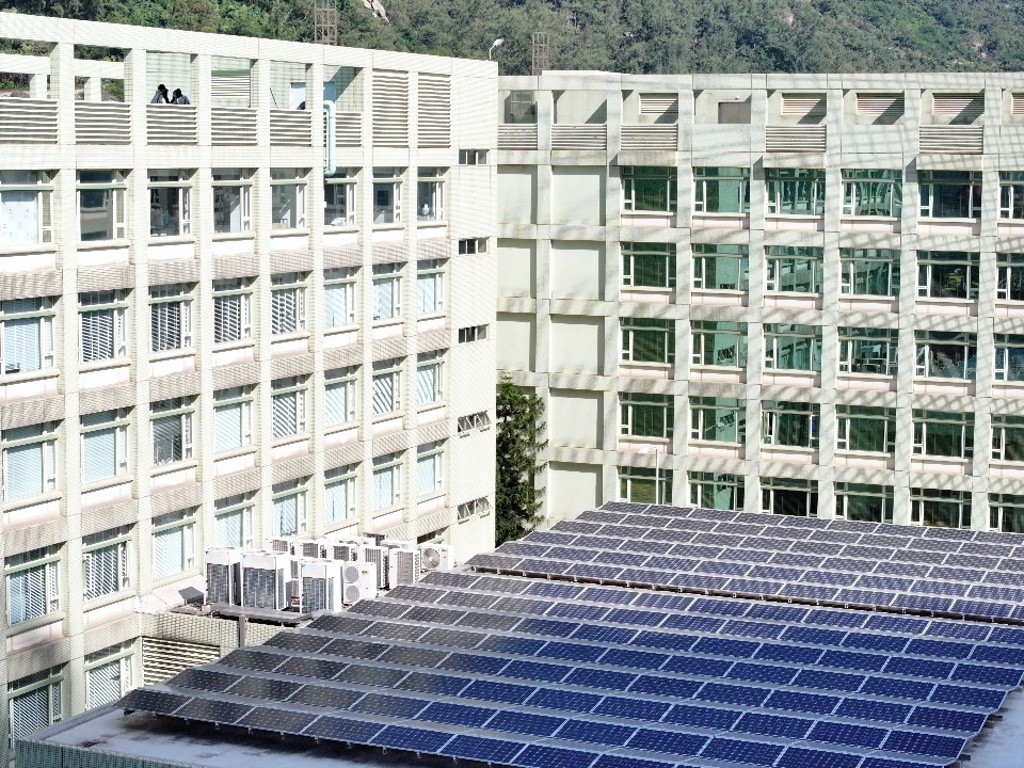Towards Carbon Neutral Campus
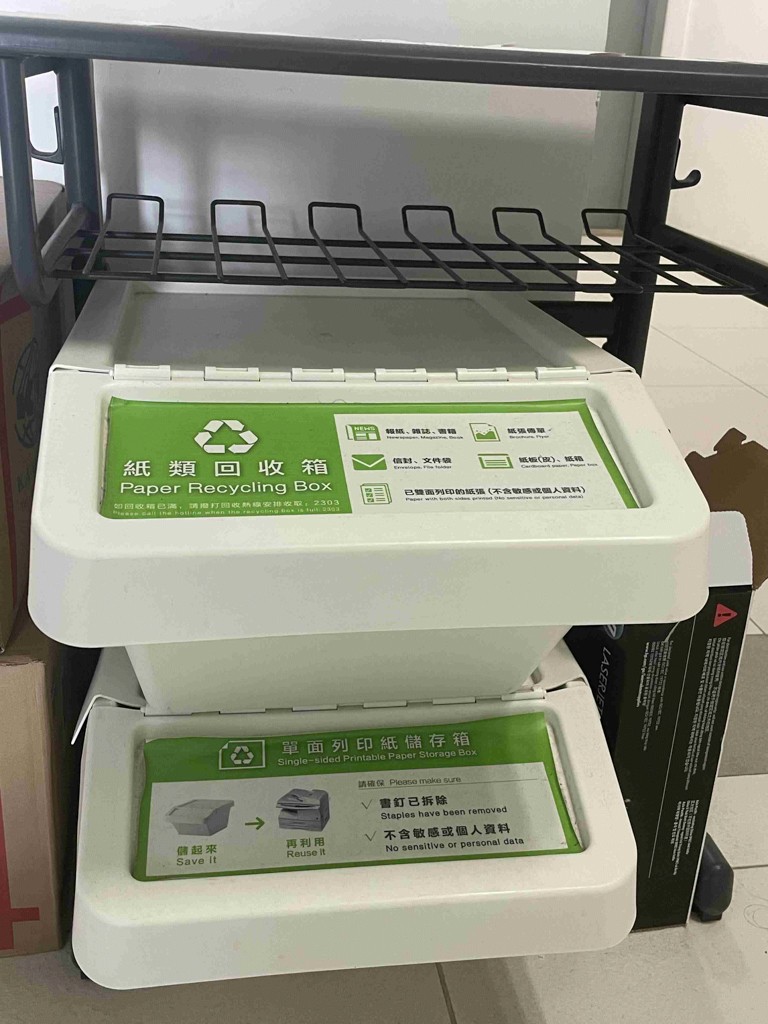
Recycle old newspapers/magazines:
There are recycling bins located in various places across the campus, including A113, A206, A508, and A312 of Block A, G/F of Block I, O331 of Block O, and the 10th Floor of Waldolley. From September 2021 to August 2022, the university recycled 2535 kg newspapers and magazines, corresponding to 6.3375 tCO2e.
Recycle red envelopes:
MUST recycles red envelopes after the Spring Festival every year, and the recycling time is about two weeks. The locations of the recycling bins for red envelopes include the underground lobby of Block A, Block B, Block C, Block N, Block O, and Block R. In 2021 and 2022, about 4600 red envelopes were recycled, which can reduce 1.8308 kgCO2e.

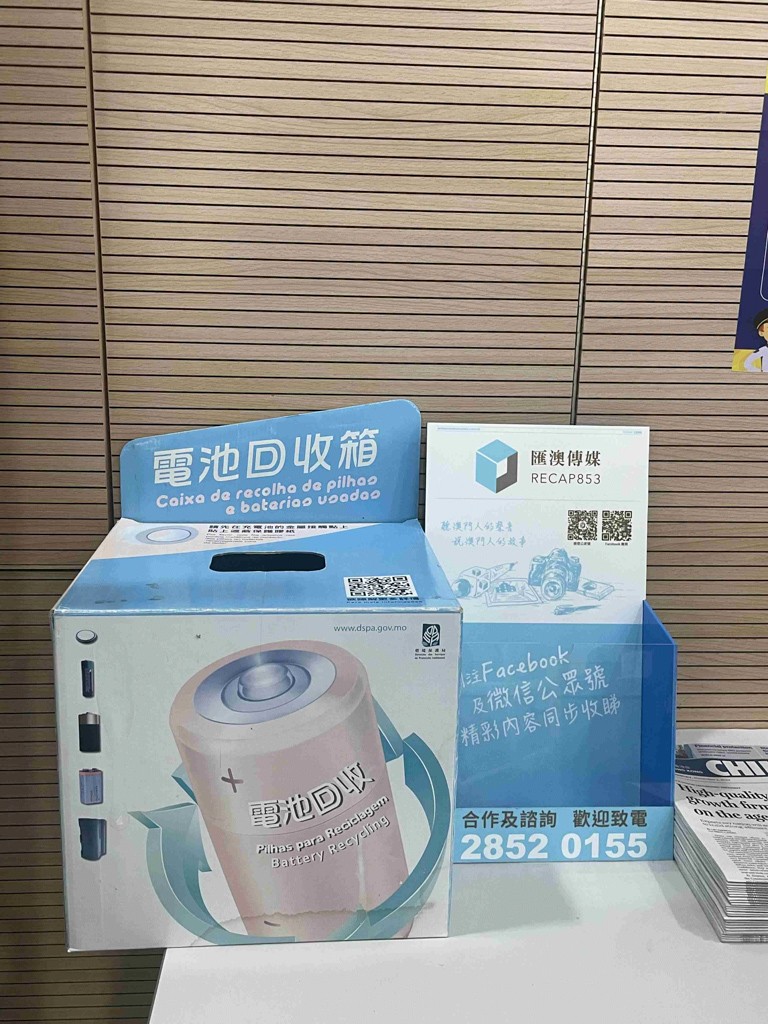
Recycle battery:
The Macao Environmental Protection Bureau encourages citizens to recycle used batteries from time to time. Locations of recycling bins for batteries are in Block F, Block G, the 4th floor of Block L, Block M, the 1st floor of university library in Block N, and Block P. MUST recycled 0.127 tons of used batteries, which can reduce GHG emissions of at least 38.08 kgCO2e each year.
Recycle plastic bottles:
From September 2020, MUST install plastic bottle recycling machines in the underground lobby of the football fields in Block I and Block O. In August 2022, 121,137 plastic bottles have been recycled, which can reduce 3,634.11kgCO2e carbon emissions.

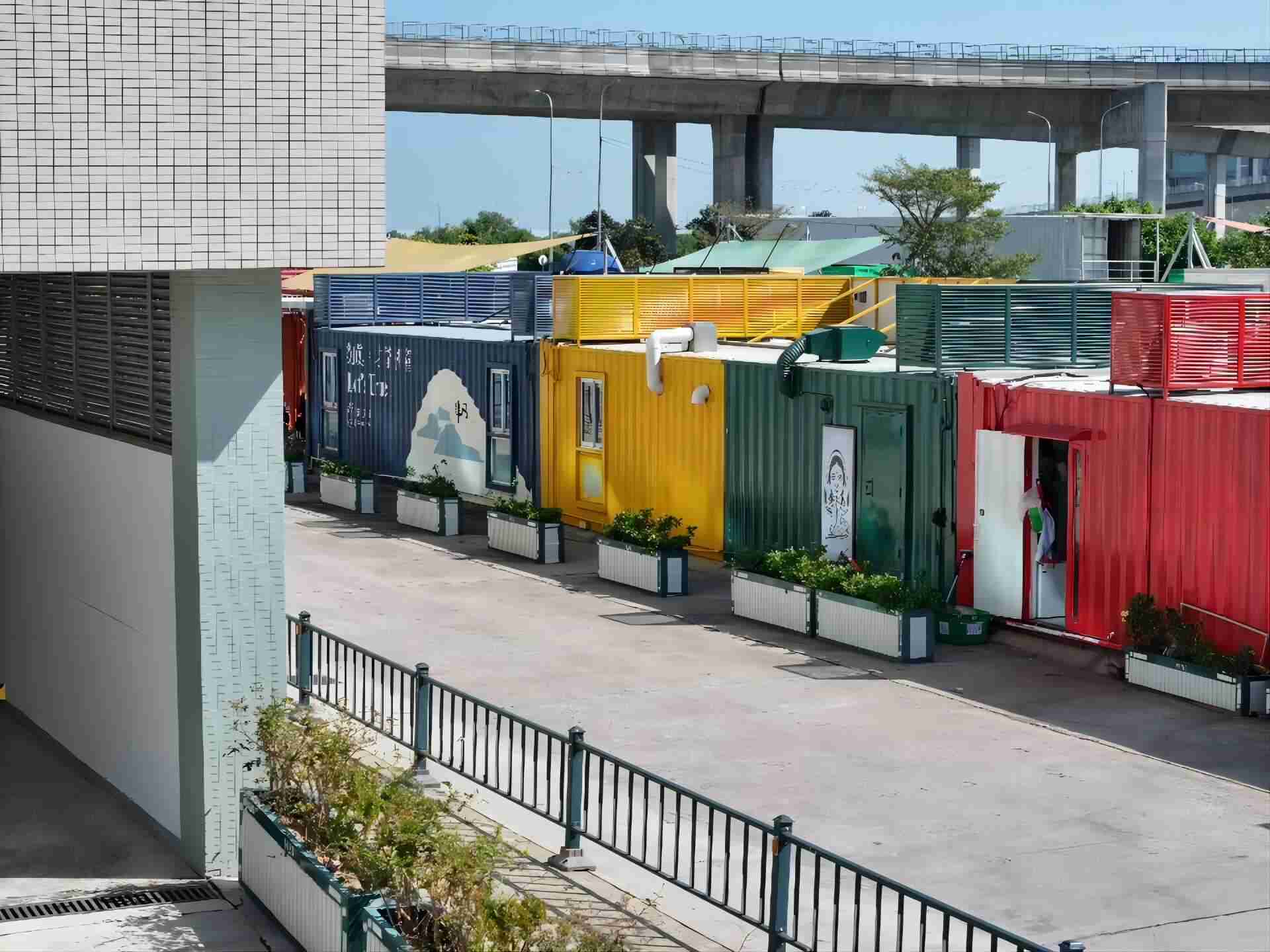
Recycle scrap products:
From January 2020 to August 2022, MUST recycled a total of 2,400 pieces of scrap products, including computer equipment, instruments, furniture, photocopiers, vehicles, etc., which can reduce carbon emissions by 146,400 kgCO2e.
Recycled toner cartridges:
From October 1, 2019 to August 31, 2022, 595 toner cartridges have been recycled, which can reduce 5,313.35 kgCO2e carbon emissions.
"Casual Clothes Summer, Let's Save Energy” and "Let's Turn Off Lights, One Hour"
As one of the co-organizers, the MUST supports the World Environment Day series organized by the Environmental Protection Bureau of the Macao SAR Government for the 16th consecutive year this year (2023). To save energy and reduce emissions, jointly promote an energy conservation culture. The temperature of the indoor air conditioning system on campus is also maintained at not less than 25 ° C, and university staff can wear light clothing to work without affecting their professional image.
The 16-year efforts have contributed to GHG reduction of 67 tCO2e. In the future, MUST will continue to support the low-carbon development in Macau, in order to promote environmental protection, and create a green campus culture for sustainable development.

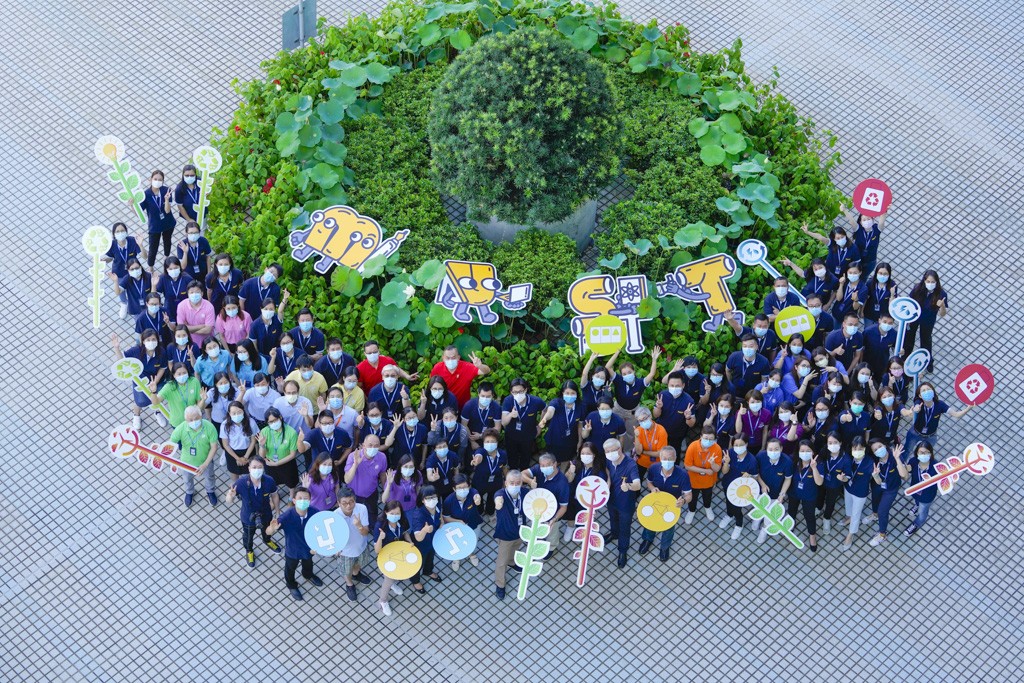
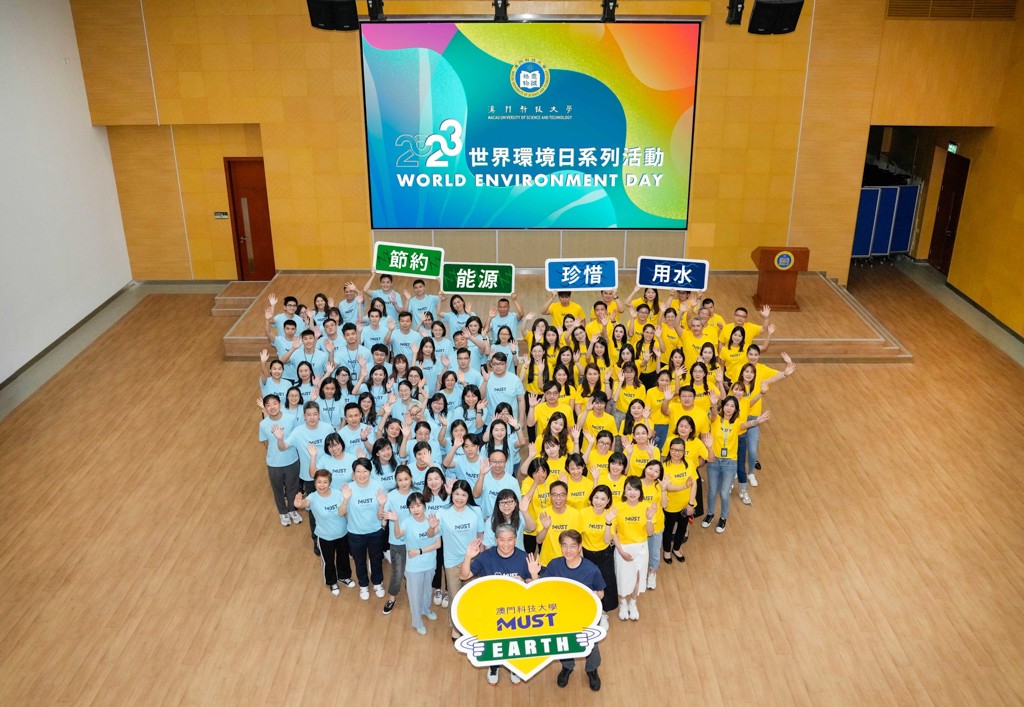
Carbon sink by green area
In academic year 21/22,the total green area of MUST campus is 38,385m2, including 1,486 trees/palms and 157 potted plants. Rhododendron and banyan tree hedges are planted, with the length of 1,756m. Carbon sequestration by trees in MUST campus is 481.07 tCO2e.
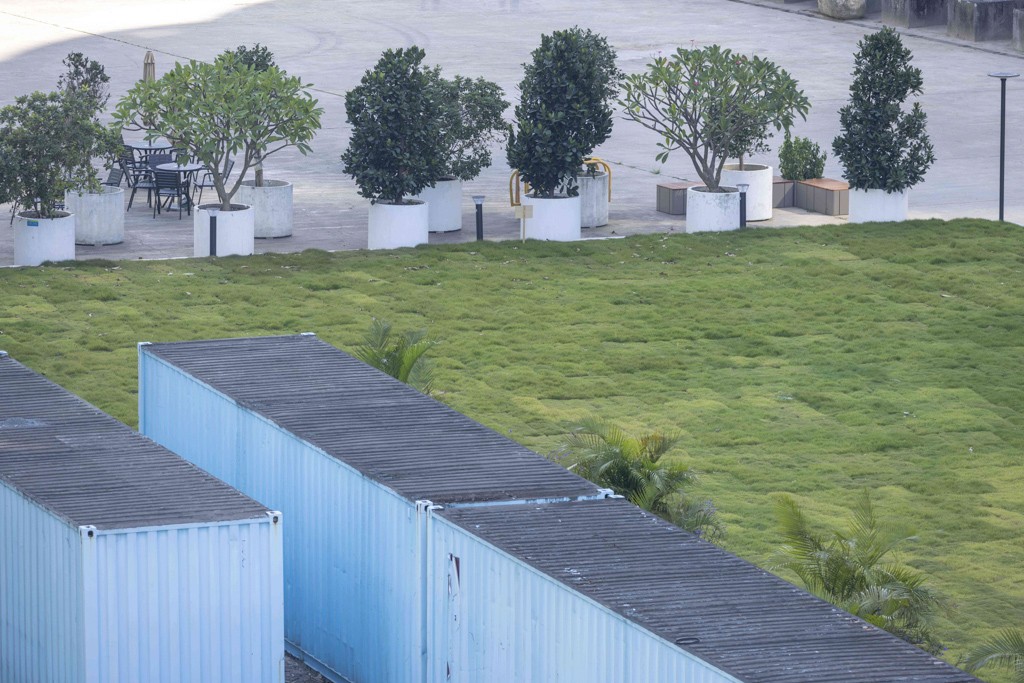


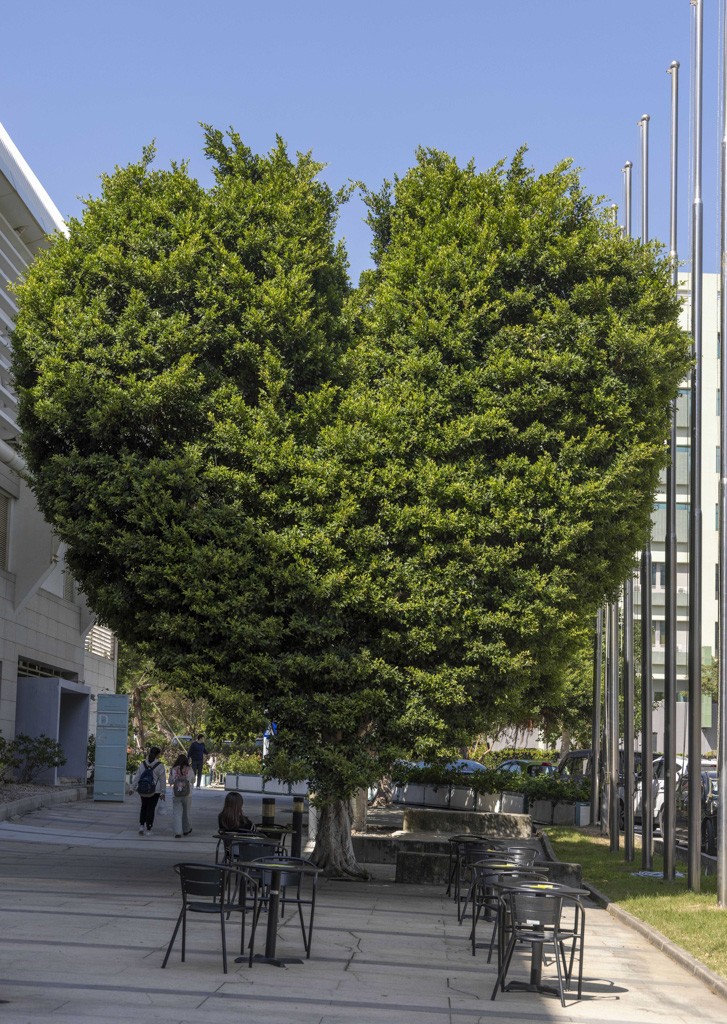


Solar Carport
In response to environmentally friendly power generation and the promotion of green energy development, MUST launched a large- scale environmental protection project last year to install solar carports for parking Spaces on campus. A total of 2,657 solar panels have been installed, the largest number and largest scale in Australia. Solar photovoltaic panels are expected to produce 1,049,712.75 KWh of clean and environmentally friendly electricity per year, equivalent to an emissions reduction of 639.28 tCO2e. The solar panels and supporting supports of the carport are made of reusable and environmentally friendly materials to reduce the waste of resources.
The solar carport of MUST was originally an open car park, but now it is installed with a solar roof to combine the open car park with solar power generation, which can not only generate environmentally friendly power, but also prevent vehicles from being exposed to wind, sun and rain, which can help slow down the aging damage of vehicles, reduce the number of car washes, save a lot of water and reduce the environmental pollution caused by chemical washing products, and greatly reduce the consumption of earth resources.
The entire project also has a dedicated website, where you can view the monthly electricity collection data chart and provide electricity data. The University is committed to promoting the development of green energy and enhancing energy efficiency. It has planned to expand this environmental protection project, including the installation of solar panels in pedestrian corridors and the introduction of transparent solar Windows, so that the University can generate more green energy and actively improve the environment and protect the earth.
The solar project was officially signed at the 2017 Macao International Environmental Cooperation Development Forum and Exhibition (2017MIECF). Jointly developed by the Macao Institute of Environmental Studies at MUST and Wanyao Energy Co., LTD., the two sides will continue to work closely together to develop an "innovative" and "sustainable future".
